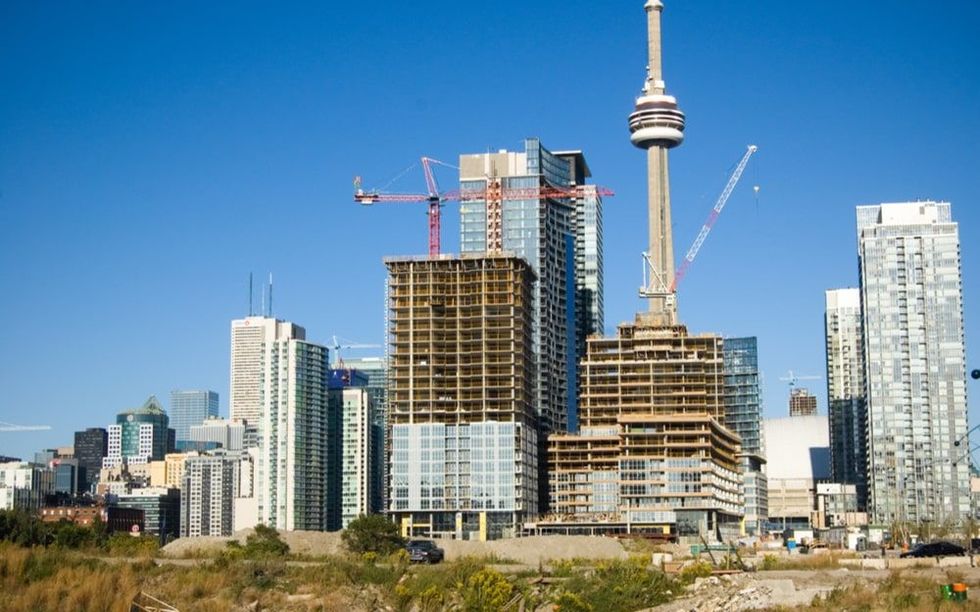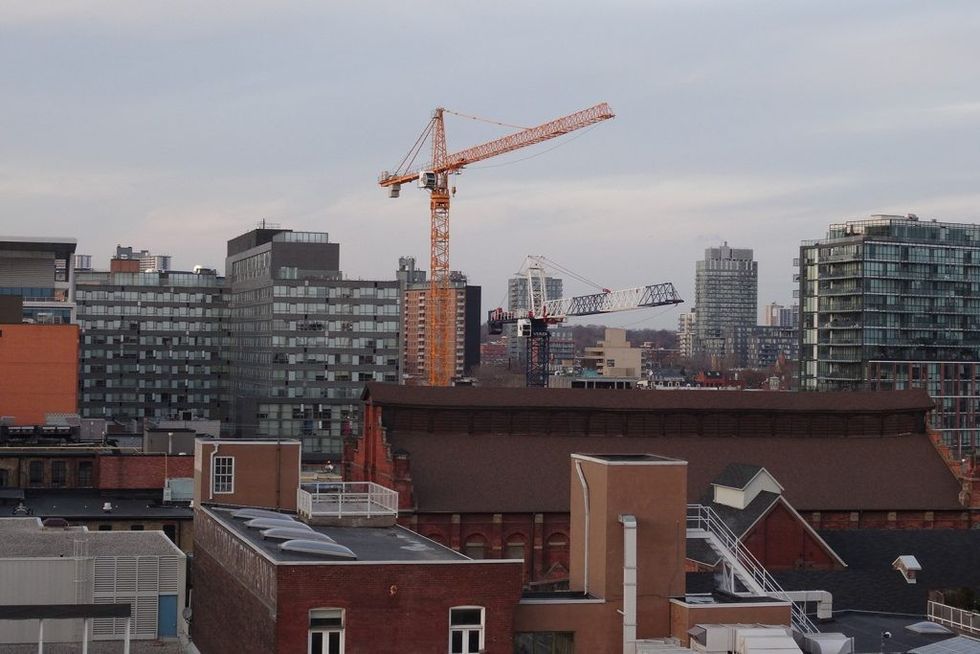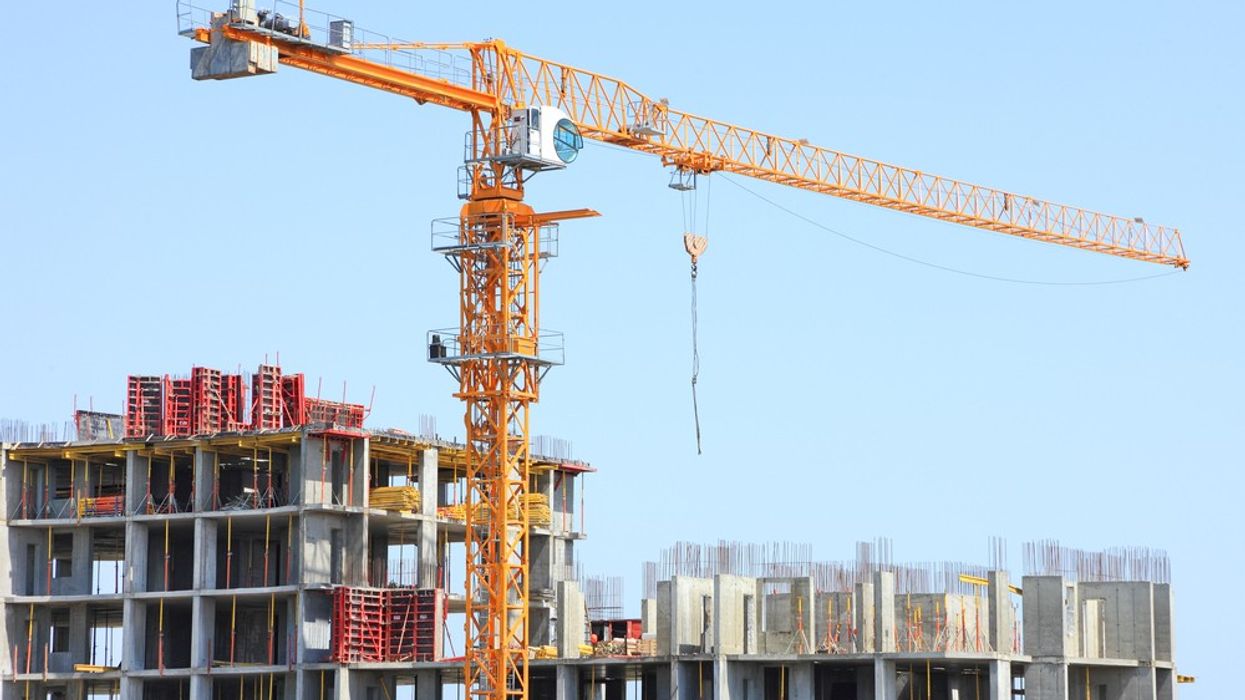Plans for a shiny new midtown condo are on hold after the City of Toronto rejected its zoning amendment application, citing an inability to meet tight new development approval deadlines. In short, it appears the City would rather reject a proposal than consider it past said timelines that would subsequently result in having to refund hefty development application fees.
As such, the provincial government’s new development timelines could be doing the opposite of what they were intended to do, according to critics.
It’s been nearly two years since Doug Ford’s government introduced its More Homes for Everyone Act (Bill 109) – something designed to ramp up the much-needed construction of new housing throughout the province. For those in the dark, Bill 109 introduced a number of changes to former housing legislation, notably, targeting lengthy municipal development approval processes. Vowing to slash the “red tape” that they said unnecessarily slowed things down, the government zeroed in on timelines. Now, Ontario municipalities are required to make decisions on development and rezoning applications within a much tighter timeframe – or else face the punishment of having to refund application fees.
As of January 1, 2023, applicants who don’t receive approval of their site plan application within the legislated timeframe have their application fees refunded through a phased approach.
The amount is dependent on the amount of time that has passed since the municipality received the complete application fee: 50% of the fee within 60 days, 25% of the fee within 90 days (for a total refund of 75%), and 25% of the fee within 120 days (for a total refund of 100%). A similar fee refunding incentive is now in place to speed up zoning applications. If no decision is made on rezoning applications within 90, 150, or 210 days then, then 50%, 75%, or 100% of the application fee, respectively, is refunded.
Critics say that these timelines aren’t feasible – especially in complex and rapidly-densifying cities like Toronto – and that a one-size-fits-all approach doesn’t work for Ontario’s incredibly diverse municipalities. Is it time to stop the clock?
The Case Of 2079-2111 Yonge Street
The case of the rejected application for 2079-2111 Yonge Street (just south of Eglinton) has ruffled some feathers and inspired a reflection on these new rules. In September 2023, Glen Corporation submitted an application to the City for a 29-storey building, something that would seemingly blend right in with the towering new condos along Yonge Street and continue the neighbourhood’s trajectory of rapid densification. But, as the City outlined, there were some concerns with the proposal – concerns that would apparently take more than 120 days to resolve.
In its case for the application’s rejection, the City cited concerns over such items as the property’s existing designated heritage buildings, potential wind issues, and a deviation from the local aesthetic.
Perhaps most notably, there were concerns over plans for rental replacements for the real estate’s existing inhabitants. While the application proposed the replacement of the 31 existing rental units on the development site, the City said that more time was needed to resolve the rental relocation of six additional rental units that currently sit on the adjacent property, which are being considered for parkland.
“They didn’t make room for all the rental units they needed to replace within the new building, but it sounds like they were making progress to figure this out,” says Andrew Athanasiu, Chief of Staff for Councillor Josh Matlow, who represents the ward where the proposed development sits. “Because of this legislation, however, City Planning has no choice but to reject it. In talking with my own planning staff and his interactions with the planner on the file, it seems like they were getting there, but the legislation doesn’t leave any wiggle room for the City to say, ‘We just need a few more weeks.’ Instead, it’s serving as a blunt tool,” he continues.
With that said, as engineer Damien Moule points out on X, the City didn’t complete the evaluation of the Rental Housing Demolition Application on time. Furthermore, Moule says the City had ample time to review the development. “There was clearly no way for a reasonable planning framework to resolve this incredibly complex application. After all, they only pre-consulted for a year and received the application for another 3 months. How could they be expected to evaluate it after only another 120 days?,” he wrote, sarcastically, in a post.
But Athanasiu stresses that the developer and City Planning wereactively working toward a solution. “It would seem that, if they had a little more time, one would have been found,” says Athanasiu. “Given the backlog at the Ontario Land Tribunal at this point, it would probably get this resolved sooner and we could get on with building it if we had additional time to make a decision. There have been a number of solutions proposed to the government that there be some sort of way that even the developer could say, ‘OK, let’s stop the clock.’ That’s something that’s been proposed to our office by numerous developers in conversation. But it’s not something we can do because of the legislation; it’s up to the Province.”
In the absence of such change, the worry is that this will be the start of an eye-opening – and counterproductive – trend from the City.

Are Strict Timelines Necessary?
To be fair, numerous studies have shown that both Canada and Toronto are slow to build. At the same time, the country has been characterized with record-breaking immigration targets as of late, many of whom will settle in Toronto. So, most of us can agree that change is needed.
Richard Lyall, president of the Residential Construction Council of Ontario (RESCON) highlights research that shows approval timelines have lengthened in Toronto over the years. In 2022, developers were looking at a 32-month wait time for approval, according to figures compiled by Altus Group. This marked an increase from 21 months the year before, with Toronto ranking last among 20 Canadian cities in terms of approval speed. Lyall also cites previous reports that such delays have added up to $50K to the price of condos since 2020.
“The system needs an overhaul, and we are hoping that the Toronto Housing Action Plan and new development and growth division in the city will lead the way,” Lyall wrote back in April 2023. “We must make sure that approvals are not held up unnecessarily.”
As for the City, it’s already overwhelmed with development applications, something that Councillor and Deputy Mayor Mike Colle stresses each time we chat. Meanwhile, the Province has a loud and clear goal to build 1.5 million homes by 2031.
Problems With PACs
A major change in the application process may not be working out as planned when it comes to desired outcomes. A new municipal bylaw now requires a pre-application consultation (PAC) prior to the submission of an application for site plan approval – something that became mandatory in Toronto on April 3, 2023. Prior to the enactment of this by-law, a municipality was required to permit, but did not require, a pre-consultation.
Since last April, a PAC is now required prior to submitting an Official Plan Amendment, a Zoning By-Law Amendment, a Draft Plan of Subdivision, and a Site Plan Control.
Toronto urban planner Naama Blonder says that the change is designed to positively impact development approval timelines and offer a more structured approach to manage project expectations and implementation. Upon completion of the PAC, applicants are given a checklist designed to simplify the official application process and ensure they’re fully prepared.
Unlike in the past, now all PAC information is open and accessible to the public and meetings once deemed informal and optional are formally required. A public hearing is also part of the process in some cases.
This new process, says Blonder, takes some of the weight off of the formal rezoning process. “Now, municipalities are putting all the heavy lifting of what used to be the rezoning process on the PAC, and now in many municipalities, it’s a two-phase process,” says Blonder. “In Toronto, for example, you now have a PAC for rezoning and a PAC for the site plan. It has to be one after the other. In the past, you could do them at the same time to have some efficiencies.” Critics say this is making the approval process slower, adding more steps and doing nothing to speed up the construction of new homes.
The new PAC process is now also more sensitive and removes any space for a more casual conversation among professionals, making it more political, says Blonder. “We now need to put together a pretty comprehensive package as a first step, then wait a few months,” she says. While the goal was to simplify the process and make it shorter, Blonder says it may have actually created a “black hole” in some cases.
“One of the things that left a black hole as a result of the process is, if you’re going through committee of adjustment, you don’t need to come for a PAC,” says Blonder. “Now, I have some mid-rise buildings on avenues, which – as a planner, in my professional opinion – should be approved through the committee of adjustment because they have minor variances. Because the PAC has changed, I lost the ability to have an informal conversation with the city planners, like before. So, there’s now this black hole; while some cases are clearly for rezoning and some are clearly committee of adjustment, some fall in between.”
Blonder says the system may not yet know how to cope with these niche cases, something she says could have been overlooked when they thought of the PAC.
A “Catch-All’ Approach
Athanasiu stresses the current “catch-all across the province” approach isn’t realistic when it comes to planning applications.
“There’s a big difference in complexity when you’re dealing with a large application at Yonge and Eglinton that wouldn’t be comparable to an application for a development on a greenfield site,” says Athanasiu. “So, it’s an iterative process when we go through these applications. A lot of the time, people will submit things people aren’t seeing in public, such as the application engineer construction services – as in, ‘will this actually work?.’ Sometimes, there are basic constructibility concerns that the developer isn’t an expert in either and is hiring their own consultants and going back and forth for months, but working through in good faith on both sides. It takes time; it’s complex.”
Athanasiu stresses that applications can’t be looked at in a vacuum. “With built-up urban neighbourhoods, there is so much practical and legal to consider – does it fit in with character of the neighbourhood? Does it work? Does it fit into existing utilities? Does it destroy the neighbours’ ability to build?,” says Athanasiu. “These simply aren’t issues with greenfield development.”
Making a Bad Situation Worse
The new timelines, say critics, may actually cause even more backlog at the Ontario Land Tribunal (OLT), as developers have no choice but to plea their cases. Lyall himself says this is a valid consideration. “If more applications end up being diverted to the OLT process then, without considerably more resources, the OLT will find itself with over-loaded case burdens and consequent delays,” says Lyall. “Continued efforts to improve development process matrices is a better approach and some municipalities, including Toronto, are in the process of focusing on improving timelines and responsiveness.”
Furthermore, the loss of application fees represents a huge loss of revenue for the City and may also exasperate the issue. Application fees in the City of Toronto start at $60,511 for an official site plan amendment and $45,258 for a zoning bylaw amendment. These funds pay for City resources to process those very applications. So, having to refund even portions of these fees will exacerbate the very thing the Province says it is trying to fix.

Will They Last?
Due to their relatively recent implementation, Blonder says it’s too early to tell if PACs are speeding up the application process. “I had submitted something to PAC in June, they asked me to come to a second PAC, and I got my checklist in January,” says Blonder, to put things into perspective. “We’re not yet seeing projects that have been approved under Bill 109.”
With that said, Lyall says there’s room for re-evaluation. “The intentions of the legislation were well-meaning and the regulations have successfully focused additional attention on unreasonably long planning approvals processes,” says Lyall. “However, realistically, development applications vary in complexity and this may impact timelines. Additionally, municipalities have focused attention on mechanisms that avoid the successful application of these timelines, notably pre-application consultations that effectively delay the commencement of the clock on the timeline requirements.”
In this context, Lyall says it’s likely more productive to encourage cooperation and modernize planning approvals processes rather than implement more punitive approaches such as rebates and penalties. “I believe it would be prudent to review the value of these regulations and consider different approaches that result in a more collaborative and responsive process,” says Lyall. In the meantime, the Building Industry and Land Development Association (BILD) is in the process of appealing the public consultation element of PACs for nine Ontario municipalities, including Toronto. (BILD was unable to provide comment in time for publication.)
Whether the provincial government will reconsider the rules, of course, remains to be seen. Numerous attempts to contact the office of Housing Minister Paul Calandra went unanswered, at time of publishing. In December 2023, however, Minister Calandra did say that Bill 109 would be reviewed.
As for the City, change doesn’t happen overnight, and the tight timelines are still relatively new. “The City knows they could do better with timelines and that our processes could be better,” says Athanasiu. “With all the various reporting departments – transportation services, engineering construction services, emergency services – there could be a streamlining that goes on there, and that’s happening. But this tool is not working well for either side.”
And, for him, it’s more than just growing pains for the City. “There needs to be some sort of mechanism where, if both parties – City planning and the developer – agree that they’re acting in good faith that there's an out in this legislation, or it’s having a perverse effect and delaying the construction of new housing,” says Athanasiu. “I think that’s what’s happening in the case of 2079-2111 Yonge Street. They ran out of time and neither side could do anything about it. It’s not good public policy.”
- Lengthy Approval Times are Adding Up to $50K to GTA Condo Prices ›
- New RESCON-Sponsored Research Looks to Streamline Ontario's Development Approvals ›
- Toronto Launches Online Submission Tool for Development Applications ›
- 59-Storey Condo Proposed To Replace Midtown Toronto Townhomes ›
- Victoria Park ‘Housing Now’ Development Closer To Fruition ›





















